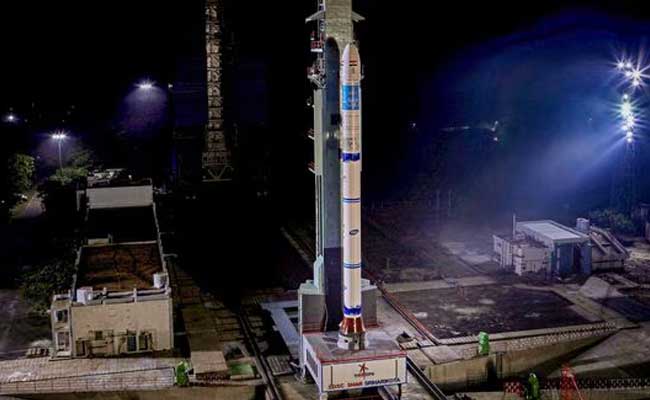New Delhi: The Australian government has signed an $18-million memorandum of understanding (MoU) with NewSpace India Limited (NSIL), the commercial arm of the Indian Space Research Organisation (ISRO). Announced by Australian High Commissioner Philip Green, the partnership will see Australian firm Space Machines launch a satellite inspection and observation payload aboard ISRO's Small Satellite Launch Vehicle (SSLV) in 2026. This payload will be the largest Australian satellite launched to date, according to Rajat Kulshrestha, co-founder of Space Machines.
Australian High Commissioner Philip Green emphasized that this partnership marks a significant step in Australia's space engagement with India. The collaboration will enable Australian satellites to be launched from Indian soil, elevating the bilateral space cooperation to new heights.
S. Somanath, Chairman of ISRO, outlined an ambitious vision for the future, aiming for 20-30 SSLV launches annually to meet the growing demand for small satellite launch services. He also highlighted the broader goal of increasing capacity and capability in India's space missions, including the ambition to land an Indian astronaut on the moon by 2040.
The partnership will involve several stakeholders in India's private space economy, including domestic space-engineering firm Ananth Technologies, which has previously supplied components and engineering services to ISRO. The privatisation of SSLV is ongoing, with six bidders identified, and the final decision pending.
This collaboration comes at a time when India's commercial space activities face a downturn due to a lack of internal demand. Despite this, India’s private space sector has attracted $370 million in investments to date, with Skyroot Aerospace leading with $95 million. The deal with Australia is one of India's first significant cross-border investments in the space sector since its privatisation in 2020.
ISRO and the Australian government announced plans for joint space conferences in November to further enhance collaboration between the two space economies.
Let the Truth be known. If you read VB and like VB, please be a VB Supporter and Help us deliver the Truth to one and all.
Kalaburagi: Four men have been arrested in Kalaburagi on charge of hacking a man with lethal weapons and pelting stones at him under the limits of Station Bazaar Police Station recently.
According to police sources, Anand Jalak Shinde (34), Ashitosh Jalak Shinde (30), Imran Mehboob Sheikh (28) and Sohaib Anwar Qureshi have been arrested. The men are accused of the brutal murder of Syed Mehboob, a resident of Station Bazaar Upper Line Hamalawadi in the city.
An FIR was filed by the Station Bazaar Police Station based on a complaint given by Syed Ismail, father of the deceased Syed Mehboob.
Following quick probe, the police team successfully arrested the suspects within 24 hours. The arrested men were produced in court and have been sent to judicial custody.
The City Police Commissionerate has appreciated in an official release the police team’s quick solving of the murder case and arrest of the four men accused of murdering Syed Mehboob.





